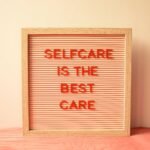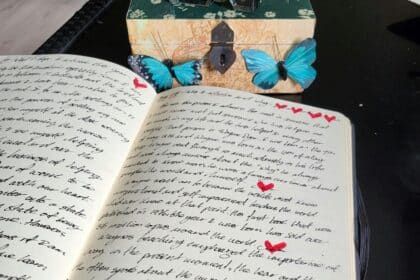Life doesn’t always unfold the way we hope. Sometimes, heartbreak, loss, and overwhelming challenges seem to consume every corner of our world, leaving us searching for a way to heal. In these moments of raw vulnerability, journaling becomes more than just putting pen to paper-it becomes a lifeline. “” is a journey into how writing can help us untangle the knots of pain, find clarity amidst chaos, and begin to mend the pieces of our broken hearts. If you’re standing at the edge of your own storm, looking for a way to navigate through the darkness, this article is here to gently guide you toward light and healing, one heartfelt word at a time.
Understanding the Power of Journaling in Emotional Healing
When emotions become overwhelming, putting pen to paper offers a sanctuary where feelings can flow freely without judgment. Journaling acts as a gentle guide to untangle the knot of complex emotions, allowing writers to confront pain, fear, and grief with compassion and clarity. This form of self-expression transforms inner turmoil into manageable narratives, helping individuals make sense of their experiences and find unexpected strength. Writing regularly unlocks personal insights that often remain hidden beneath the surface, turning chaotic emotions into stepping stones toward healing.
- Creates a safe emotional outlet where you can release your deepest feelings without fear.
- Encourages mindfulness by connecting you to the present moment and grounding your thoughts.
- Promotes self-awareness and helps identify patterns that may contribute to ongoing pain.
Through this intimate dialogue with oneself, journaling fosters resilience and hope. It becomes an act of self-love, a commitment to healing that nurtures the heart one word at a time. By making space for vulnerability on the page, you empower yourself to rewrite your story-not as a victim, but as a survivor emerging stronger from life’s toughest moments.
Creating a Safe Space on Paper to Express Your Deepest Feelings
When you take pen to paper, you’re not just writing words-you’re building a sanctuary where honesty reigns and vulnerability is embraced without judgment. This quiet refuge allows your emotions to surface in their rawest form, free from the fears of outside scrutiny or misunderstanding. To cultivate this safe haven, consider setting simple yet powerful rituals: choose a comfy, private nook, light a candle or play soft music, and give yourself permission to write without censor or expectation. Let your thoughts flow unfiltered, knowing that this sacred practice belongs solely to you and your healing journey.
Keeping a physical journal can also ground you during moments of emotional turbulence. By turning your feelings into tangible, visible expressions, you transform overwhelming chaos into manageable pieces. Incorporate these gentle reminders as you journaling:
- Start each entry by acknowledging your current emotional state.
- Use metaphors or imagery to give life to feelings that feel too complex to name.
- Embrace imperfection – there’s no “right” way to feel or write here.
- Revisit past entries not to dwell, but to witness how far you’ve come.
Through this compassionate engagement with yourself, the pages become more than just ink and paper-they become a trusted confidant holding your deepest truths.
Techniques to Navigate Grief and Pain Through Reflective Writing
When faced with overwhelming grief, putting pen to paper can become a lifeline-a sacred space where the heart’s burdens are gently unpacked. Begin by creating a quiet ritual: find a favorite notebook or digital journal and dedicate a specific time each day to write freely. Embrace raw honesty; let your words flow without judgment or structure. Sometimes, starting with prompts like “Today, I’m feeling…” or “A memory that keeps returning is…” can help guide your thoughts. This process encourages you to confront emotions not as enemies to be fought, but as parts of your journey to be understood and embraced.
Incorporating creative techniques can deepen your healing. Try letter writing to significant people-whether it’s an unsent letter to a lost loved one, or words of forgiveness to yourself. Integrate mindful reflection by pausing after each entry to note insights or shifting feelings, using colors or underlining key phrases for emphasis. Additionally, blending poetry, sketches, or even collages alongside your writing opens new pathways to process pain. These varied outlets transform your journal into a dynamic companion-a trusted witness to sorrow and resilience, capturing the evolving landscape of your heart’s recovery.
Building Resilience and Finding Hope One Journal Entry at a Time
When life feels overwhelming, journaling becomes more than just putting words on paper-it transforms into a powerful act of self-compassion and courage. Each entry is a small victory, a deliberate step towards reclaiming control amid chaos. Rather than suppressing emotions, writing invites you to confront them gently, unraveling tangled thoughts until they become manageable threads of understanding. This process is a testament to your inner strength, highlighting how vulnerability can foster growth even during the darkest times.
Embracing journaling as a daily ritual opens up a space to discover sparks of hope, even when they seem elusive. The simple act of reflecting allows you to:
- Recognize patterns in your feelings and reactions
- Celebrate small wins that often get overlooked
- Shift perspective from pain to potential
Through these pages, resilience is built not overnight, but with every honest word you write, reminding you that healing is an ongoing journey-one entry at a time.
To Wrap It Up
As we close this chapter on healing hearts through journaling, remember that your story is powerful-every word you pen is a step toward reclaiming hope and peace. Life’s toughest moments may leave scars, but your journal becomes a sacred space where pain transforms into strength, and tears give way to new beginnings. So, pick up that pen whenever your heart feels heavy; let your thoughts flow freely, and watch as healing gently unfolds, one page at a time. Your journey matters, and through journaling, you are never truly alone. Keep writing, keep healing.
















